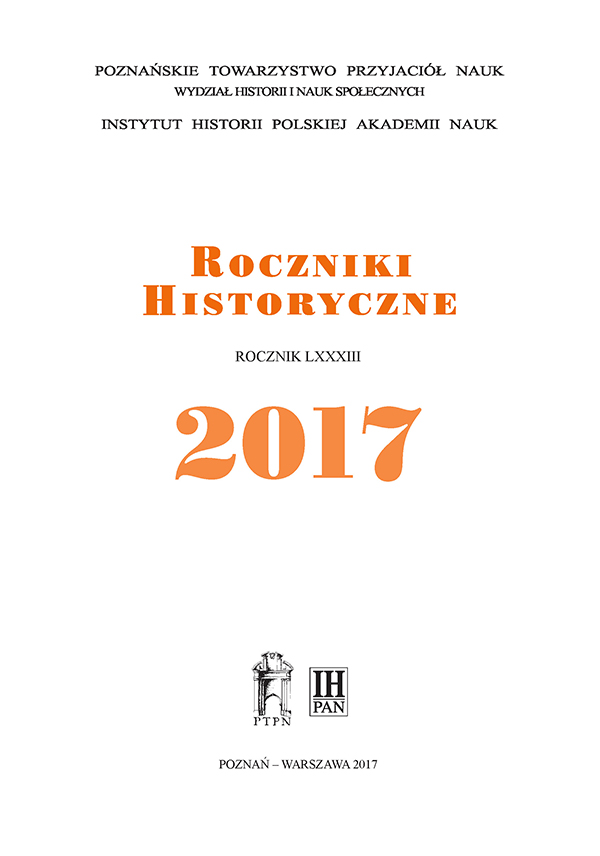Donos na dominikanina. Studium historyczne i edycja tekstu listu denuncjacyjnego Stanisława ze Skarbimierza i akt sprawy brata Mikołaja z Brześcia z około 1421 roku
Denunciation of a Dominican. A historical study and text edition of a denunciatory letter by Stanisław of Skarbimierz and the records of the case of friar Mikołaj of Brześć (circa 1421)
Author(s): Tomasz GałuszkaSubject(s): Cultural history, Oral history, 15th Century
Published by: Instytut Historii im. Tadeusza Manteuffla Polskiej Akademii Nauk
Keywords: Stanisław of Skarbimierz; Dominicans; provincial Mikołaj of Brześć; Wojciech Jastrzębiec; Cracow University; Hussitism; Wiclifism; denunciatory process; medieval preaching;Inquisition;
Summary/Abstract: The aim of this paper is an analysis and edition of three texts contained in two 15th century manuscripts from the Jagiellonian Library (BJ 1629, BJ 1652): a denunciatory letter (litterae denuntiationis) by the first rector of the reactivated Cracow University, the vicar general of the bishop, Stanisław of Skarbimierz, concerning the views proclaimed by the former provincial of Polish Dominicans, Mikołaj of Brześć; the reply (positiones et responsiones) to the accusations by Mikołaj of Brześć; conclusions (conclusiones) publicly presented by Mikołaj of Brześć. Both manuscripts contain part of the records of the denunciatory process (per denuntiationem; denuntiatio iudicalis publica), which took place in Cracow about 1421. Stanisław of Skarbimierz, when preparing his letter, accepted the function of the procurator of a group of local clergymen (sacerdotes et plebani). The letter was addressed to the bishop of Cracow, Wojciech Jastrzębiec, and contained a list of nine controversial theses, which Mikołaj of Brześć was supposedly preaching in his sermons. He claimed, inter alia, that Dominicans had greater power concerning the confession of the faithful than diocesan clergy but parish priests forbid them to confess with the Dominicans because of their greed (they wanted to sell masses and services to them); that parish priests who prevented the Dominicans from performing their ministrations, were heretics and Hussites, and concerning the privileges of the Dominicans they lied like dogs; that the Cracovian professors were incompetent; that the Body of Christ (Corpus Christi) during the Eucharist was received by the faithful like an ordinary meal (velud aliter cibus). On the basis of that litterae denuntiationis a summons was drawn, to which the monk prepared his reply (positiones et responsiones), and also lodged several allegations concerning the persons who produced the denunciation. At the last stage of the proceedings, maybe during the sitting which closed the evidentiary hearings, the Dominican publicised six general conclusions (conclusiones), probably prepared at the bishop’s chancery. Their author restricted himself mainly to literally quoting fragments from the Cracovian synodal statutes of 1420. The denunciatory process ended with the publication of the conclusions and the Dominican was found not guilty of infringement of Canon law and questioning the teachings of the Church, but he should have worked on his own insouciance in speech. The case of friar Mikołaj of Brześć is an original testimony of internal reforms in the Cracovian church and complicated relations of Polish Dominicans with diocesan clergy, as well as reactions of local clergy to the external threat of Hussitism and new theological currents.
Journal: Roczniki Historyczne
- Issue Year: 2017
- Issue No: 83
- Page Range: 7-64
- Page Count: 58
- Language: Polish

